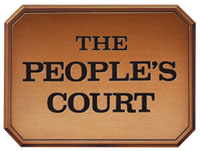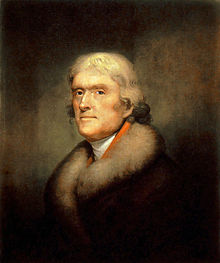
Is there such thing as a good divorce? That’s not the subject of this month’s Eschewmenical blog. This month we’re talking about the separation of church and state. But, in an age when corporations are people it’s fair to consider the two parties (Church and State) and consider the grounds of their divorce.
- The Petitioner
- The State:
- Secular, profane, worldly
- Bound by human laws
- Highest calling is reason
- Prefers a scientific understanding of the universe
- The Respondent
- The (Catholic) Church:
- One, holy, catholic, apostolic
- Bound by eternal and divine laws
- Highest calling is spiritual truth
- Understands the universe in the light of faith and reason
Even though the two seem at cross purposes, as is the case with so many divorces, after cross examining the respondent I found that She wasn’t quite ready to break off the commitment:

Nor can We predict happier times for religion and government from the plans of those who desire vehemently to separate the Church from the state, and to break the mutual concord between temporal authority and the priesthood. It is certain that that concord which always was favorable and beneficial for the sacred and the civil order is feared by the shameless lovers of liberty.
Pope Gregory XVI – Mirari Vos – 1832
180 yeas ago and only 40 years after the beginning of the first major secular revolt against Christianity, the Holy Father still wasn’t prepared to let go. He actually thought that a relationship could be fruitful and useful for preventing things that are detrimental to church and state such as breaking the commandments.

Believing with you that religion is a matter which lies solely between Man & his God, that he owes account to none other for his faith or his worship, that the legitimate powers of government reach actions only, & not opinions, I contemplate with sovereign reverence that act of the whole American people which declared that their legislature should “make no law respecting an establishment of religion, or prohibiting the free exercise thereof,” thus building a wall of separation between Church & State.
Thomas Jefferson – Letter to Danbury Baptists 1802
But Mr. Jefferson doesn’t desire that the relationship should continue. He’d rather see religion just as the personal relationship between man and God. And that may be well and good for Protestants and deists, but we Catholics would rather love God in a loud and boisterous manner with timbrels, harps and good stuff like that. We even invite God’s mother to our celebrations and all their friends the Saints and Angels. So, because of a few key doctrine of the Catholic Church, embodied since time immemorial in the Apostles Creed a mutual separation is not possible. The Church doesn’t want to settle for visitation rights only on Sundays and Holy Days of Obligation, the Church wants full custody of the souls of Her children.

Again, that it is not lawful for the State, any more than for the individual, either to disregard all religious duties or to hold in equal favour different kinds of religion; that the unrestrained freedom of thinking and of openly making known one’s thoughts is not inherent in the rights of citizens, and is by no means to be reckoned worthy of favour and support. In like manner it is to be understood that the Church no less than the State itself is a society perfect in its own nature and its own right, and that those who exercise sovereignty ought not so to act as to compel the Church to become subservient or subject to them, or to hamper her liberty in the management of her own affairs, or to despoil her in any way of the other privileges conferred upon her by Jesus Christ. In matters, however, of mixed jurisdiction, it is in the highest degree consonant to nature, as also to the designs of God, that so far from one of the powers separating itself from the other, or still less coming into conflict with it, complete harmony, such as is suited to the end for which each power exists, should be preserved between them.
Pope Leo XIII – Immortale Dei – 1885
The respondent seems to want some sort of reconciliation (albeit on her own terms), but the petitioner cites the troubling statement that free thought will be abolished and the rights of other religions will be trampled. Be this as it may, a desire for harmony is progress and any just judge would be inclined to find that the Church, who doesn’t desire that her children be split in two, should have a little more than joint custody. But, just when the judge was about to throw out the divorce and order 200 years of counseling, another American president wholly subverted the respondent’s argument and nearly irrevocably destroyed any hopes for a reunion.

I believe in an America where religious intolerance will someday end–where all men and all churches are treated as equal–where every man has the same right to attend or not attend the church of his choice–where there is no Catholic vote, no anti-Catholic vote, no bloc voting of any kind–and where Catholics, Protestants and Jews, at both the lay and pastoral level, will refrain from those attitudes of disdain and division which have so often marred their works in the past, and promote instead the American ideal of brotherhood.
John F. Kennedy – 1960 – Address to the Greater Houston Ministerial Association
And yet, we still have CatholicVote.org, so there must be some voices within the Church who don’t quite agree that Catholics aren’t supposed to vote a certain way. Well, maybe in 1960’s America there was an option who to vote for, but five years later Contraception would be wholly liberalized and largely because of that thirteen years later abortion would be legalized. In the 90’s the platform of the Democratic party in the USA would include making abortion safe, legal and rare. And more recently, just safe and legal.
So, not long after the judge of public opinion sided with my coreligionist John F. Kennedy, anyone who wanted to be Catholic in real life would have an even harder time doing so since the ideal was no longer to do so in a way that bothered anyone else. For instance, if in the closing arguments, some Pope said:

Marriage, then, is far from being the effect of chance or the result of the blind evolution of natural forces. It is in reality the wise and provident institution of God the Creator, whose purpose was to effect in man His loving design. As a consequence, husband and wife, through that mutual gift of themselves, which is specific and exclusive to them alone, develop that union of two persons in which they perfect one another, cooperating with God in the generation and rearing of new lives.
Pope Paul VI – 1962 – Humane Vitae
Those who argue for a strict separation would say, “You said God”, “you said exclusion”, “you denied an evolutionary principle” and the respondent wouldn’t even get to say what she didn’t say. The Catholic Church believes some things that it teaches (merely as a caretaker of certain self-evident wisdom) to be accessible to all mankind and some things it teaches to be only incumbent on its adherents, like the very next sentence of Humane Vitae, which no one is trying to legislate:
The marriage of those who have been baptized is, in addition, invested with the dignity of a sacramental sign of grace, for it represents the union of Christ and His Church.
ibid
So, someday the Catholic Church may have it’s true day in court and find common ground in the natural moral law. Maybe that’ll be judgement day, maybe sooner. But we need to get beyond a soundbite mentality and risk infinite repeats of Pope Benedict XVI’s Regensberg lecture and start making the hard reasonable arguments that win minds while saturating our arguments in the levity that wins hearts. If you need help forming a fun and rational argument, read Chesterton! If you have questions, ask them here!
Filed under Uncategorized
Tagged: Catholicism, Government

Two questions:
(a) What the flip is an “evolutionary principle” as applied to moral, ethical, or legal reasoning?
(b) Why is abortion the sticking point, and not, for example, the death penalty, or social justice, or food poverty? Why, in fact, do you never even mention these places where the US Right Wing goes proudly against the teachings of your church? Why has the US Catholic Church hierarchy swing wildly right recently? Is it a grab for temporal power, aligning themselves (as the Mormons have done) with the evangelical bloc, in an attempt to be seen as an “insider” rather than an outsider in the Religious Right?
Okay, point b started with genuine curiosity, and then veered off into attack somewhere along the way. I should probably edit it, but (i) I’m too tired, and (ii) I know you can take it. So meh.
TRiG.
a) Hyperbole, I was scanning Humanae Vitae for the thing that could be taken out of context in the worst possible way and present it as something that is just Natural Law and not Divine Law.
b) 1. Abortion concerns the most vulnerable. 2. We do, see our teaching on immigration (although you may think it’s opportunistic). 3. Because they’re getting wise the what was most certainly wrong about the lack of real catechesis in the 80’s and 90’s and the wayward youth is actually listening. 4. It’s amazing that Rick Santorum was the “Evangelical Candidate”. But seriously, look here on this site, I certainly agree with Jon Ericson a lot more than I do with any atheist. 5.